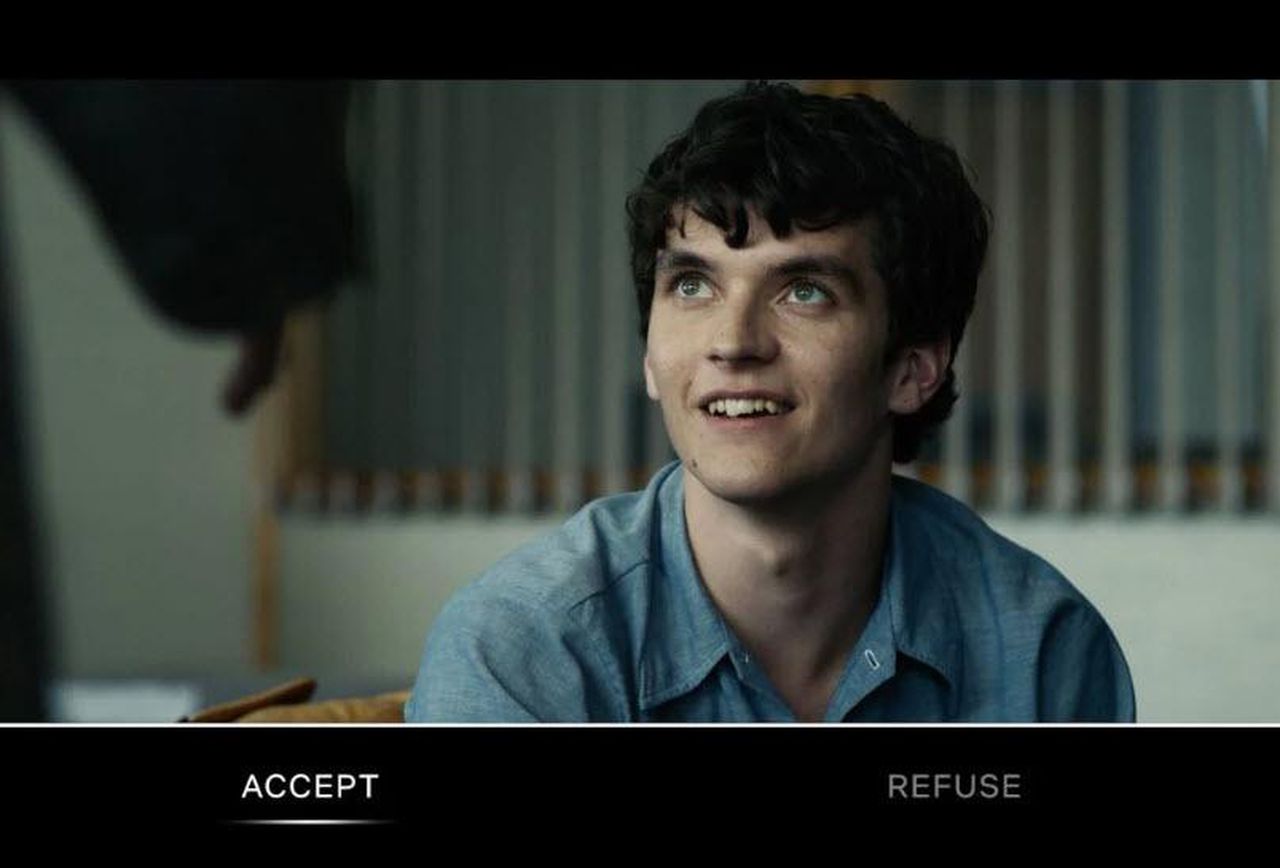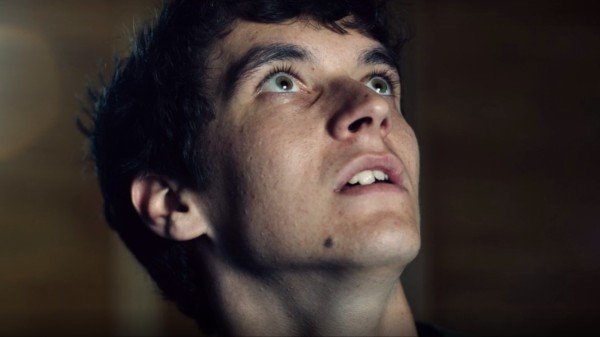The following a guest post by Rufo Tolentino.
The newest installment of the Black Mirror series, Bandersnatch has been out for about a week now. The selling point of the Netflix experiment is the choose-your-own-adventure style viewing experience. The viewer guides the main character, Stefan, by making selections on the screen which determine which thread of the story they will view.

The reviews have been mixed. Some refer to the latest Black Mirror installment as flawed, others call it outright boring and uninspired. To contrast against my feelings for the first Black Mirror “movie”, my favorite episode was White Bear from season 2. The episode’s conclusion left me altered. I brooded on the not-so-happy ending and was noticeably shaken for at least a day. There were several episodes that have left me in that state, which is why I watch every new installment as soon as I find out about it. At the end of Bandersnatch, the reaction was not so much ‘I feel like my world has been shaken,’ as ‘that was a fun adventure with a creepy ending.’
For me, the movie was very enjoyable, and at the same time not altogether satisfying. By the second or third ending, I felt like a Harry Potter fan taking a quiz over and over again trying to get Gryffindor. I was going through the motions, just trying to see as many alternate endings as I could. In retrospect I realize, the endings didn’t matter. What made the experience memorable for me was everything in the periphery.
Spoilers for Black Mirror: Bandersnatch below.
The story itself was interesting. Bandersnatch explores the realms of mental health, free will, and whether or not we could change the past if we were given the opportunity. There’s a lot of heavy content housed in the little story about a video game programmer trying to make a choose-your-own-adventure style game. At times it felt rushed. At others, like they dragged a thread for a few choices too many. But I think the reason the first viewing was the most entertaining is that I didn’t get lost in the search for the perfect ending. Because, spoiler alert, there isn’t one. Stefan doesn’t make a great game and go on to be a huge success, living happily ever after. He doesn’t go back in time and save his mother from dying when he was a child (one of the other major storylines).

The joy of the choosing was the journey, and that’s the point. Yes, some of the choices are inconsequential like the first choice of which cereal to have for breakfast. Still, allowing myself to be immersed in the world through those inconsequential choices was fun. You are Stefan, making innocuous choices like what to have for breakfast or what tape to put into your cassette player. So when you make the first meaningful choice– whether or not to work at the programming offices or complete the game on your own– you feel the weight of the decision as he does.
The setting and the aesthetic of the film also add to the entertainment value. The oversaturated look feeds into the eeriness of the storyline. There are moments that are visually stunning, from the acid trip with his colleague Colin to the unsettling appearance of Pax in one of Stefan’s dreams (A demon from the book Stefan’s game is based on and earlier described to Colin in the storyline). The 80s soundtrack adds the ambiance as well, heavily synthesized music, at times upbeat and poppy, and others strange and ominous.

The film is not without its flaws. It raises more questions about free will and mental health than it answers. Some of the threads force you to go unexpected places. Some choices are forced if you want to get to one of the main endings, like Stefan working on the project on his own and not taking his prescription anti-psychotics.
As far as I can tell, I hit all the main endings and they were all rather uninspired. I expected dark and twisted, and that’s exactly what I got. Nothing more, nothing less.
Perhaps the movie could have been better executed, but it did engage me in the experience. Most of the time, my Netflix watching involves making food in the kitchen or cleaning up around the house with content streaming in the background. To run to the remote control and try to beat the ten second timer that auto selects a choice for you made that problematic. Finally, I started the interactive movie over, sat down, and participated in the experience.
That’s what I think is so entertaining about Bandersnatch. You don’t watch the movie, you participate in it. Although I wouldn’t recommend it as a jumping off point for someone entering the Black Mirror world, I felt the overall experience was worth going through– as long as you participate and don’t just go searching for all the endings, clicking away mindlessly and fast forwarding through the scenes.

I remember being a kid and flipping through choose your own adventure books, audibly sighing at taking the wrong path. I think if that’s what you choose to do with Bandersnatch, you’ll enjoy the film a little more. Sit down and enjoy the experience. Watch Stefan lose control as he becomes more aware that he’s not controlling his own actions. Enjoy the drug trips. Make mistakes and watch the characters go through deja vu as you revisit a scene. You might not be blown away by any of the destinations, but it’ll be a fun journey.